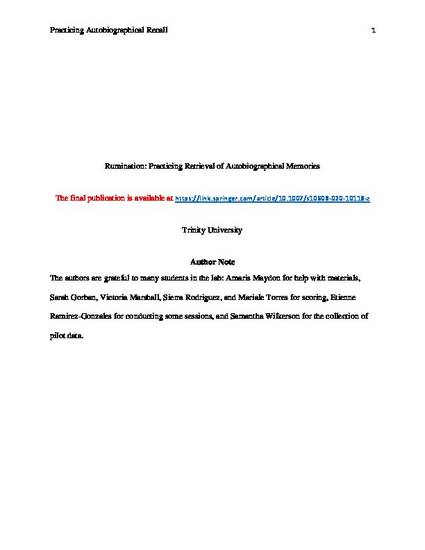
Background
People who ruminate about negative personal experiences seem to be engaged in practicing retrieval, with the expected consequences of perpetuating those very memories (see Roediger and Butler in Trends Cogn Sci 15:20–27, 2011). Method
To provide an experimental model of the effect of retrieval practice on subsequent recall of autobiographical memories, we recruited students with low and high scores on the Ruminative Response Scale (Treynor et al. in Cogn Ther Res 27:247–259, 2003), gave them positive and ruminative cues to generate memories, and cued three rounds of practice of half of the memories from each valence. Results
A week later, final cued recall for all memories showed strong practice effects, with the exception that ruminators benefited very little from the request to practice positive memories. Conclusion
Recalling personal memories benefits from prior practice in bringing them to mind. However, these results provide insufficient evidence to recommend training recall of positive autobiographical memories to counteract rumination.
